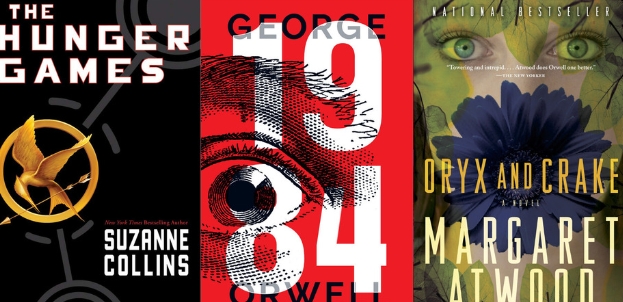Dystopian literature has long been a popular genre, offering readers a glimpse into dark and often oppressive worlds. From George Orwell’s classic “1984” to Margaret Atwood’s “The Handmaid’s Tale,” these novels explore the consequences of societal collapse, environmental devastation, and totalitarian regimes.
A Look at the Origins of Dystopian Literature
Dystopian literature has its roots in the early 20th century, with works such as Aldous Huxley’s “Brave New World” and Yevgeny Zamyatin’s “We” setting the stage for the genre. These novels often depict a future society that is controlled by a powerful government or corporation, where individual freedoms are limited and citizens are forced to conform to strict rules and regulations.
Exploring the Dark Worlds of Dystopia
One of the most iconic dystopian novels is George Orwell’s “1984,” which imagines a world ruled by a totalitarian regime known as Big Brother. The novel explores the dangers of surveillance, censorship, and propaganda, painting a bleak picture of a society where freedom of thought is a crime.
Another standout in the genre is Margaret Atwood’s “The Handmaid’s Tale,” which takes place in a society where women are subjugated to men and stripped of their rights. The novel explores themes of gender oppression, religious extremism, and reproductive rights, offering a chilling look at a world where individuality is suppressed.
Other notable dystopian works include Ray Bradbury’s “Fahrenheit 451,” which envisions a world where books are banned and reading is outlawed, and Suzanne Collins’ “The Hunger Games,” which follows a society where children are forced to fight to the death for entertainment.
The Influence of Dystopian Literature
Dystopian literature has had a profound impact on popular culture, influencing films, television shows, and even real-world politics. These novels force readers to confront uncomfortable truths about the world we live in, sparking important discussions about surveillance, government control, and social inequality.
As society grapples with increasing political polarization and environmental challenges, dystopian literature serves as a stark reminder of the dangers of unchecked power and societal collapse. By exploring these dark worlds, readers can gain a deeper understanding of the consequences of oppressive regimes and the importance of safeguarding individual freedoms.
In conclusion, dystopian literature offers a compelling and thought-provoking look at the dark underbelly of society. By delving into these novels, readers can gain new perspectives on the world around them and contemplate the potential consequences of unchecked power and societal control. As we navigate an uncertain future, these novels serve as a warning and a call to action, urging us to protect our freedoms and stand up against injustice.
